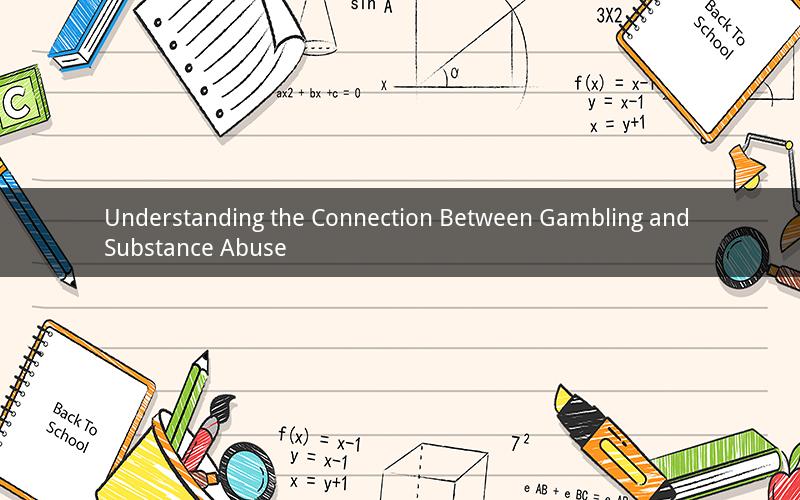
Gambling has been a topic of debate for decades, with many questioning whether it should be classified as a drug. This article explores the similarities and differences between gambling and drug addiction, delves into the psychological effects of gambling, and examines the legal and social implications of labeling gambling as a drug.
1. What are the similarities between gambling and drug addiction?
Both gambling and drug addiction share several similarities, such as:
a. Compulsive behavior: Individuals with gambling and drug addictions often exhibit compulsive behaviors, which can lead to significant financial, social, and psychological consequences.
b. Reward-driven: Both activities are driven by the desire for a reward, whether it's the thrill of winning money or the euphoric sensation of using drugs.
c. Loss of control: People with gambling and drug addictions often find it difficult to control their behavior, leading to escalating problem-solving behaviors and, in some cases, criminal activity.
d. Withdrawal symptoms: Those who quit gambling or drug use may experience withdrawal symptoms, such as anxiety, irritability, and insomnia.
2. How does gambling affect the brain?
Gambling can have a profound impact on the brain, similar to drug addiction. The brain's reward system plays a significant role in both activities. When a person wins at gambling or uses drugs, the brain releases dopamine, a neurotransmitter associated with pleasure and reward.
a. Dopamine release: The release of dopamine during gambling and drug use reinforces the behavior, making individuals more likely to continue engaging in these activities.
b. Brain changes: Prolonged engagement in gambling and drug use can lead to changes in the brain's reward system, making it more challenging for individuals to experience pleasure without these activities.
c. Vulnerability to relapse: The altered brain's reward system can make individuals more susceptible to relapse, as they seek to recreate the pleasurable sensations they experienced during gambling or drug use.
3. Are there legal and social implications of labeling gambling as a drug?
Labeling gambling as a drug would have significant legal and social implications:
a. Legal implications: If gambling were classified as a drug, it could lead to stricter regulations on gambling activities, such as increased restrictions on advertising and the placement of casinos.
b. Social implications: Labeling gambling as a drug might change public perception of gambling, leading to increased awareness and understanding of the risks associated with problem gambling.
c. Treatment and support: Recognizing gambling as a drug addiction could prompt governments and organizations to provide more resources and support for individuals struggling with problem gambling.
4. What are the differences between gambling and drug addiction?
While there are similarities between gambling and drug addiction, there are also notable differences:
a. Physical effects: Drug addiction often has more direct physical effects, such as organ damage, whereas the physical effects of gambling are usually limited to the loss of money and relationships.
b. Social impact: Drug addiction can have a more significant impact on social relationships, as individuals may engage in illegal activities to support their habit. In contrast, problem gambling can lead to financial and relationship issues, but it may not have as severe an impact on social connections.
c. Treatment options: Treatment for drug addiction often involves medication and behavioral therapy, whereas treatment for gambling addiction typically focuses on counseling and self-help groups.
5. How can society address the problem of problem gambling?
Society can address the issue of problem gambling by implementing the following measures:
a. Education and awareness: Educating the public about the risks associated with gambling can help prevent problem gambling. This can be achieved through campaigns, workshops, and school programs.
b. Treatment and support: Providing accessible treatment and support services for individuals with gambling problems is crucial. This can include counseling, therapy, and support groups.
c. Responsible gambling: Encouraging responsible gambling practices, such as setting deposit limits and self-exclusion programs, can help prevent problem gambling.
In conclusion, while there are similarities between gambling and drug addiction, it's essential to recognize their unique characteristics. By understanding the psychological, legal, and social implications of gambling, society can work together to address the issue of problem gambling and provide support for those affected.